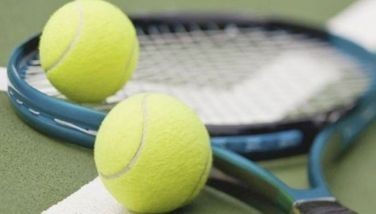Peping says don't blame athletes

LONDON – Philippine Olympic Committee president Jose Cojuangco, Jr. said yesterday while the delegation of 11 Filipino athletes displayed the common denominator of lack of stamina in crashing out of Olympic medal contention in eight different sports, they can’t be blamed for the shortcomings that plague the development of elite competitors.
“Let’s not criticize our athletes,” said Cojuangco who witnessed the last Filipino athlete, BMX rider Danny Caluag, bow out in the Olympic family lounge with daughter Mikee and granddaughter Francesca Guingona. “If we don’t provide for the nutrition, strength and conditioning of our athletes, they can’t be expected to deliver. We’ve been left behind by other countries that put an emphasis on sports science. No doubt, we’ve got the potential to excel in sports but our athletes must be in the best physical shape. Like in any sport, you just can’t rely on talent alone.”
Cojuangco cited the example of swimming where Filipino contenders Jessie Khing Lacuna and Jasmine Alkhaldi started strong but faltered down the stretch. In the 200-meter freestyle, Lacuna clocked 26.03 seconds in the first 50 then slowed down to 27.79 in the next 50, 28.85 in the third 50 and 30.24 in the last 50. The trend was the same in the 100-meter freestyle with Alkhaldi who did 27.96 in the first 50 and sputtered to 29.17 in the last 50. “It’s all about strength and conditioning,” he said. “The element of nutrition is also vital in that aspect. A perfect example is Jessica Ennis who took the Olympic gold in heptathlon. She’s no bigger than my daughter Mikee yet she had the strength and stamina to win the gold.”
Ennis, 26, stands 5-5 and weighs 130 pounds. Despite her lithe frame, she was unbeatable in the grueling event of seven disciplines that was introduced in the Olympic calendar in 1984. The heptathlon consists of the 100-meter hurdles, high jump, shot-put, 200-meter sprint, long jump, javelin throw and the 800-meter run.
Cojuangco pointed to Fil-Japanese judoka Tomohiko Hoshina as an athlete who didn’t seem to care about nutrition. “He came in overweight,” pointed out the POC head. “He couldn’t even come close to his Korean opponent who was much stronger and better prepared. I’m not sure if our athletes were advised on what to eat and what not to eat in the Village. You just can’t start eating things you’re not used to in training and remember, you can eat all you want in the Village. If you don’t watch your diet, it can affect the function of your digestive system. You’ve got to balance what you eat and there should be a nutritionist to advise our athletes on the proper food to eat.”
Even mental toughness was a concern. “In archery and shooting, if you’re not mentally tough, it’s hard to focus on your target,” continued Cojuangco. “Strength also comes into play like with our archer Mark (Javier) when he started shaking his arm in his last few arrows. I’m afraid that if our athletes keep losing because of lack of stamina or mental toughness, they’ll lose their competitive edge, they’ll lose heart. So we’ve got to do something about this problem now before it’s too late.”
Cojuangco cited the progress of sports in the UK as a case of a country developing champion athletes in just four years. “Great Britain wasn’t as dominant in the Beijing Olympics as it is now,” he said. “The British athletes are high up there in the medal standings. It’s because they’re focused on sports. In our case, it’s clear that we need a training center where we can concentrate on strength, conditioning, nutrition and skills development, we need more money to support our programs and we need technology or sports science to get us through. Before the Olympics began, I mentioned that the performance of our athletes will depend on the opposition but I felt we would do well. As it turned out, the other countries have progressed so much more in terms of developing their athletes through sports science. It’s not our athletes’ fault. They shouldn’t be blamed. They didn’t get the support they deserve in terms of international exposure, strength, conditioning and nutrition because we lack the resources. Personally, I think they should be praised for trying so hard under the circumstances. Take our runner Rene Herrera who finished the 5,000-meter distance even if he was way behind the leader pack. That took guts to do it.”
Cojuangco said lightflyweight boxer Mark Anthony Barriga was robbed of victory by Canadian referee Roland Labbe in his second fight against Kazakhstan’s Birzhan Zhakypov but mentioned the Filipino could’ve finished stronger to seal the win even with the undeserved penalty for head-butting. “I thought Barriga was cheated but still, he could’ve done more if only he didn’t run out of gas in the end,” he said. “As for Caluag, I can’t really say his performance was inspiring because he didn’t qualify for the semifinals. It was also a case of lack of stamina. I don’t think he was strong enough to contend with the best in the BMX event.”
Cojuangco hesitated to rate the Filipino athletes’ showing on a scale of 1 to 10, explaining it’s unfair to judge them because they weren’t provided the necessary support to produce medal results.
- Latest
- Trending


























